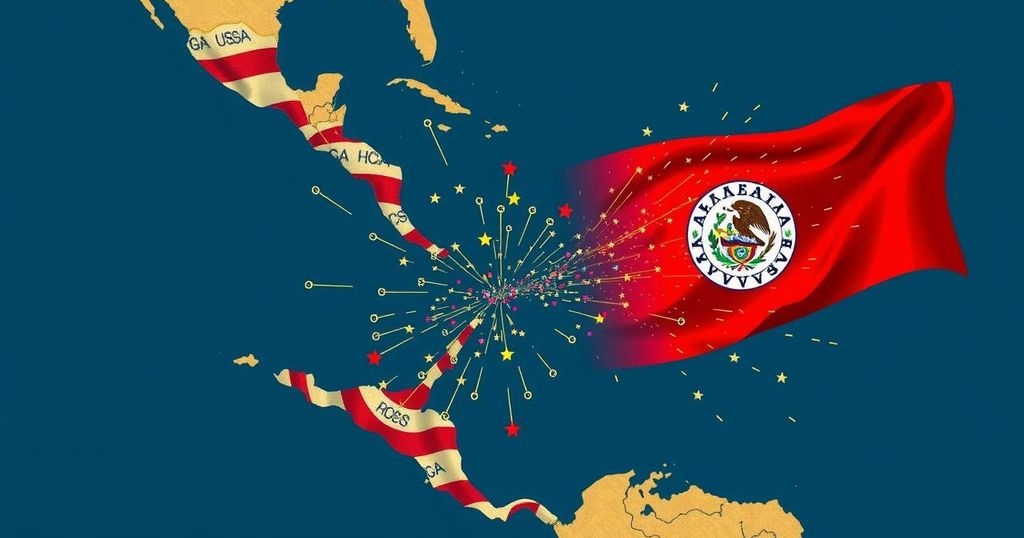Biden’s Amazon Visit: A Symbol of U.S. Commitment Amidst Contradictions in Latin America Policy

President Biden’s visit to the Amazon signals a potential new approach in U.S. policy towards Latin America, focusing on climate change and environmental concerns. His administration’s pledge of $500 million, launched finance initiatives, and an emphasis on cooperation aim to address regional priorities while reinforcing U.S. influence. However, the effectiveness of these measures is questionable, and deep-rooted contradictions in bilateral relations continue to present challenges.
On Sunday, President Joe Biden made a historic visit to the Amazon rainforest, becoming the first sitting U.S. president to do so, with the intention of underscoring his administration’s dedication to environmental preservation in Latin America. This visit not only signals a potential shift in U.S. policy but also sheds light on various trends regarding U.S.-Latin America relations. Biden’s visit symbolizes an effort to engage more deeply with the environmental concerns prevalent among Latin American nations, where deteriorating ecosystems and climate change are pressing priorities. The Biden administration vowed to assist the Amazon Fund with a commitment of $500 million, along with an additional $50 million allocation announced during his visit. Furthermore, the establishment of a finance coalition aimed at raising $10 billion for ecological restoration and sustainable development initiatives by 2030 further illustrates this commitment. Biden’s engagement with the Amazon reflects a response to the increasing focus on environmental issues by Latin American governments, particularly in Brazil, which has sought to address climate change aggressively. The visit serves to cultivate an image of the United States as a proactive global leader in combating climate degradation, aligning its policies with the priorities of the region. However, there is an underlying agenda to bolster U.S. influence in Latin America, a historic zone of U.S. strategic interest, particularly against the backdrop of competing global powers. While Biden’s Amazon visit projects an image of renewed commitment, analysts critique the tangible impacts of his pledges as largely symbolic, given that they coincide with the waning months of his term. The commitments made may lack enforceability and could easily become void should future administrations shift priorities. Moreover, deep-seated contradictions within U.S. policies persist, highlighting the struggle between asserting U.S. interests and fostering an equitable partnership. Latin American nations often aspire to address domestic economic and social challenges through cooperation, whereas U.S. policy frequently aligns with its national security imperatives, creating friction in their bilateral relations. It remains evident that future U.S.-Latin America collaboration will continue navigating the persistent conflicts and disparities present in their objectives.
In recent years, the relationship between the United States and Latin America has undergone significant scrutiny, particularly with respect to environmental issues. Climate change and ecological degradation have emerged as paramount concerns for many countries within the region, prompting a call for more substantial U.S. involvement. President Biden’s administration aims to re-engage with Latin America by addressing these pressing environmental concerns, while also seeking to consolidate U.S. influence in a region historically considered a strategic sphere. Economic discontent and the necessity for cooperative efforts to combat social issues have shaped the landscape of U.S.-Latin America relations, revealing underlying tensions between developmental aspirations and U.S. geopolitical interests.
In conclusion, President Biden’s historic visit to the Amazon rainforest reflects an attempt to bridge gaps between U.S. foreign policy and Latin American priorities, particularly regarding environmental concerns. However, the dichotomy between U.S. strategic interests and genuine partnership continues to pose significant challenges. While initiatives such as substantial financial commitments and eco-friendly projects highlight a positive trajectory in U.S.-Latin America relations, the long-term efficacy of these commitments remains uncertain in light of potential future policy shifts. The complexities of cooperation will likely persist, underscoring the need for ongoing dialogue and reconciliation of differing priorities.
Original Source: www.globaltimes.cn







